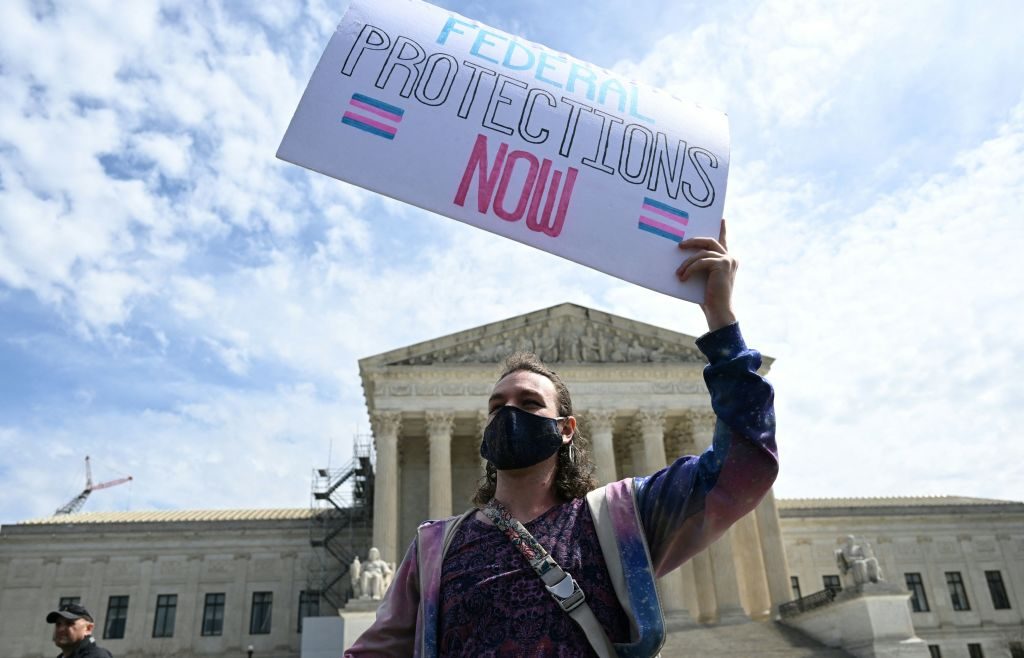Today, the United States Supreme Court is hearing Chiles v. Salazar, known colloquially as the “conversion therapy case”. This case tests the limits of state authority over therapy — what can be regulated, and what can be said. Yet the deeper question is whether society can draw a clear line between attempts to alter sexual orientation and efforts to support those experiencing gender dysphoria.
This case stems from Colorado’s 2019 law banning “conversion therapy” for minors, defined as “efforts that seek to change an individual’s sexual orientation, including efforts to change behaviours or gender expressions or to eliminate or reduce sexual or romantic attraction or feelings toward individuals of the same sex”. The law applies to any licensed psychiatrist or mental health professional working with patients under 18.
Kaley Chiles, a licensed counsellor in Colorado, brought the case against Patty Salazar, Executive Director of the state’s Department of Regulatory Agencies. Chiles, represented by the Christian activist group Alliance Defending Freedom, argues that the ban restricts her right to speak freely with clients about sexuality and gender identity. Colorado maintains that the law governs professional conduct, not speech, and that it protects minors from practices denounced as “harmful” by major medical and psychological associations.
American efforts to ban conversion therapy stem from the 2014 suicide of 17-year-old Leelah Alcorn, who was born male but identified as a girl. Alcorn left behind a suicide note which blamed her mother’s refusal to accept her transgender identity. “The only way I will rest in peace is if one day transgender people aren’t treated the way I was,” Alcorn wrote. “Fix society. Please.” She pleaded: “My death needs to mean something.”
In response, the Obama administration pushed states to adopt “Leelah’s Law”, a ban on “LGBTQ+ conversion therapy” which they cast as any “attempt to brainwash or reverse any child’s gender identity or sexual orientation”. In some instances, that included “aversive conditioning” techniques such as electric shock therapy, restricting food, or inducing nausea to repel same-sex attractions. Such practices likely did cause serious shame and anxiety to those physically and mentally abused in the effort to “cure” them of their homosexuality.
But, as more than 20 states have since banned conversion therapy, the meaning of the term, and what practices it might limit, has changed. These laws often curtail exploration of gender identity, or asking questions about why someone might want to transition with cross-sex hormones and surgeries. Such self-examination is increasingly cast as harmful— even though “harm” today often refers not to physical coercion or aversive conditioning, but to emotional discomfort.
Yet most of the research invoked to support bans on conversion therapy does not concern transgender youth. As the sexologist Dr James Cantor has observed, there have been no studies on interventions targeting children’s gender identity, and the available data pertains almost entirely to adults’ sexual orientation.
Despite the fact that LGB and T have been lumped together, examining one’s sexual attractions is not the same as deciding whether or not to alter one’s body or identity. Under conversion therapy bans, though, questioning why someone might want to transition is seen as more dangerous than prescribing cross-sex hormones or performing irreversible surgeries that some come to regret.
The truth is that a therapist’s job is neither to change a person’s sexuality or get them to accept it, nor to affirm their gender identities or dissuade them from medical transition. Rather, the goal is to deepen our understanding of ourselves. Many who urge bans on gender-affirming care condemn the bans on conversion therapy, just as many who want guaranteed access to puberty blockers and cross-sex hormones support banning conversion therapy. It’s a tricky business when the government steps in to regulate medical practices. But this case is mostly about speech — and most of us don’t want the government dictating what our therapists can tell us.











Join the discussion
Join like minded readers that support our journalism by becoming a paid subscriber
To join the discussion in the comments, become a paid subscriber.
Join like minded readers that support our journalism, read unlimited articles and enjoy other subscriber-only benefits.
Subscribe